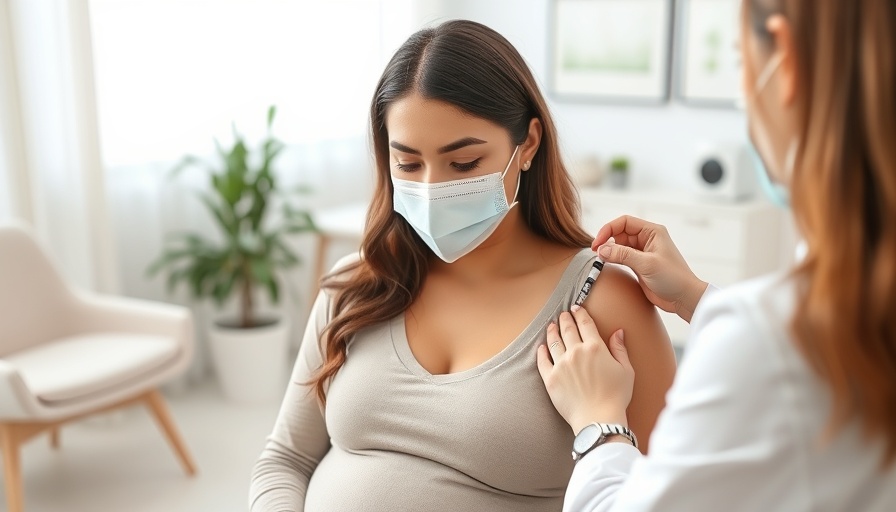
The Controversy Around Covid Vaccinations for Pregnant Women
With the rise of public health discussions surrounding Covid-19, pregnant women have found themselves at the center of conflicting guidance. Health and Human Services Secretary Robert F. Kennedy Jr. recently suggested that healthy pregnant women do not need Covid boosters, stirring a debate that has implications for both maternal and fetal health. However, experts from the Centers for Disease Control and Prevention (CDC) emphasize the opposite, categorizing pregnant women as a high-risk group that should receive vaccinations.
Understanding the Scientific Consensus
The science indicates that pregnant women who contract Covid-19 face heightened risks compared to their non-pregnant counterparts. A comprehensive meta-analysis encompassing 435 studies revealed that these women are more prone to severe illnesses, hospitalizations, and even mortality linked to the virus. Neil Silverman, a leading professor of obstetrics, underscores this risk effectively, stating that objective data confirms the concern for pregnant patients remains significant, regardless of prevailing political rhetoric. The evolving variants of the virus demand a consistent public health response to safeguard vulnerable populations.
Why Pregnant Women Are at Higher Risk
Pregnancy inherently alters the immune system, creating an environment that protects the fetus but also leaves the mother vulnerable. Virologist Angela Rasmussen noted this natural immune suppression means pregnant women can struggle more significantly against infections. The physiological transformations during pregnancy also render women five times more likely to face blood clotting issues—a risk that escalates if they become infected with Covid. Understanding these biological factors is crucial when discussing vaccination effectiveness and safety.
Navigating Misinformation in Health Guidance
Kennedy’s recent remarks not only challenge the prevailing scientific understanding, but they also pose potential risks by diverting focus from established health protocols. His statement about removing Covid vaccinations from the CDC's immunization schedule reflects a growing trend of misinformation that can harm public health efforts. The CDC’s processes, built on rigorous scientific evidence, are vital in ensuring that health guidelines protect the most vulnerable populations.
The Importance of Reliable Health Information
The landscape of health information is overwhelming, especially for pregnant women who are trying to make informed choices regarding Covid vaccination. The ongoing debate can leave them confused about the best decisions for their health and that of their unborn child. It is paramount that pregnant women seek reliable sources and consult with healthcare providers for the most accurate information regarding Covid boosters and their associated risks.
Future Implications: What Lies Ahead?
The ramifications of this debate extend beyond individual health choices; they reflect broader societal issues related to trust in health guidance. As the Covid landscape continues to evolve, it prompts an urgent discussion about how to effectively communicate essential health information while navigating misinformation. Moving forward, the focus should not only be on scientific findings but also on fostering public trust in health authorities.
Making Informed Decisions: A Call for Dialogue
From the recent controversy surrounding vaccination guidelines, one key takeaway is the necessity of open dialogue between health experts and the public. For pregnant women, understanding the science behind the recommendations can mean the difference between life and death. Engaging with reliable information empowers them to make educated decisions that can lead to healthier outcomes for both themselves and their babies.
A Final Word on the Importance of Vaccination
As conversations about Covid vaccinations continue to unfold, it's essential to remind ourselves of the underlying science that underscores the need for boosters among pregnant women. With data reflecting the higher risks faced, health authorities must persist in advocating for the safety of vaccinations. Pregnant women, regarded as high-risk patients, should prioritize their health by remaining informed and proactive.
 Add Row
Add Row  Add
Add 



Write A Comment